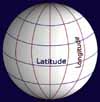A map (or a chart) is a drawing of a part of the earth's surface. A map represents something bigger. In this
sense it is a model. Like a model plane or ship it is not the real thing, but helps us understand. Because they
must be much smaller than the real world, symbols or signs represent the actual features. On a map,
"Conventional Signs" represent things in the world like roads, rivers, forests, and towns.
Maps have many uses. In early times simple maps showed the routes—traders traveled by camel or on foot. To
prevent disputes maps are also used to show the boundaries between owners of land or territory ruled by chiefs or
kings. The earliest maps found are rock carvings dating back thousands of years. Around 2,700 years ago the
Babylonians who ruled the land around the rivers Tigris and Euphrates (in present-day Iraq) made the first known
map of the 'world' that could be carried from place to place. They drew world as they knew it on a clay
tablet.
Today, remote sensing instruments and cameras carried by satellites enable a mapmaker—properly called a
cartographer—to draw highly accurate maps. These can be made to show any size or scale of the earth's
surface. By agreement between cartographers, maps usually include at least three things.
These are:
1. SCALE to show size and distance,
2. DIRECTION indicator to show north,
3. KEY (or LEGEND) to explain the meaning of symbols and
signs used on the map.
Charts and official maps also are likely to show the grid lines
of LATITUDE and LONGITUDE.
Today the reason most people use maps is to find their way around—NAVIGATION. Have you helped someone use
a road atlas to find the way to another town or state? You were navigating!
|




